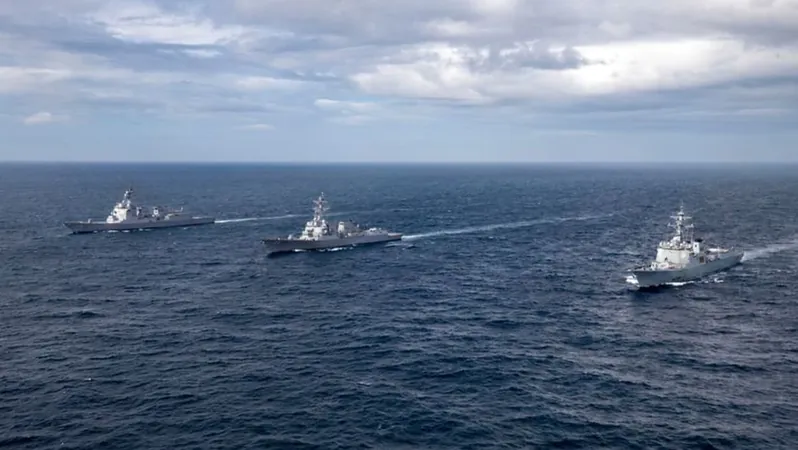
Shigeru Ishiba's Radical 'Asian NATO' Proposal: A Shocking Shift in Japan-US Relations?
2024-09-27
A Bold Move for Geopolitical Shuffle
In a bold move that could reshuffle the geopolitical landscape, Shigeru Ishiba, recently elected as Japan's next Prime Minister, is proposing an ambitious plan aimed at creating an 'Asian NATO.' This initiative, which seeks to redefine Japan's long-standing alliance with the United States, could spark significant diplomatic challenges for Washington as it navigates its role in Asia amidst rising tensions with China.
Concerns Over Geopolitical Stability
Ishiba, who took the helm of Japan’s ruling Liberal Democratic Party on September 27, articulated his vision in a recent paper presented to the Hudson Institute, emphasizing that without a collective defense mechanism akin to NATO, Asia risks heightened military conflicts due to a lack of mutual defense obligations. He expressed concerns over increased Chinese military maneuvers near Japan's territorial waters, asserting that a new alliance could serve as a deterrent against potential aggression.
Skepticism from the US
Despite his technical grasp of military issues, Ishiba’s proposal has already faced skepticism from US officials. Daniel Kritenbrink, the Assistant Secretary of State for East Asia and the Pacific, has characterized the concept as premature and not aligned with existing strategic frameworks in the region. Influential political analysts like Joseph Kraft have pointed out that while Ishiba is adept in military strategy, his diplomatic savvy regarding national security remains untested.
Doubling Down on Collective Security
Nevertheless, Ishiba doubled down on his stance during a press conference, citing the 'relative decline of US might' as a compelling reason for Japan to pursue a new collective security treaty in Asia. He envisions incorporating existing frameworks such as the Quad alliance (which includes Japan, the US, India, and Australia) and the AUKUS pact (involving Australia, the UK, and the US), alongside Japan's strengthening defense ties with South Korea and various European nations.
A Controversial Proposal
One of the audacious elements of his proposal includes potentially sharing control of the US's nuclear arsenal as a deterrent against Japan's nuclear-capable neighbors. Ishiba's vision extends to revising US-Japan military arrangements to allow Japanese troops to be stationed in Guam for the first time since World War II, reflecting a significant pivot in Japan's military posture.
Addressing Tensions with the US
While Ishiba promotes this reformation as a way of rebalancing Japan's alliance with the US, it is also an effort to address longstanding tensions regarding US military bases within Japan, which have often been a source of friction with local populations.
Regional and Global Implications
The implications of Ishiba’s proposal stretch far beyond bilateral relations; they could alter regional dynamics as Japan seeks closer alliances with other nations grappling with the influence of China. As tensions rise in the Indo-Pacific region, the global community is left wondering whether Ishiba’s 'Asian NATO' will gain traction or fade into political obscurity.
Conclusion: A New Balance of Power?
The world is watching closely—will Ishiba's radical vision for a new security framework redefine the balance of power in Asia?

 Brasil (PT)
Brasil (PT)
 Canada (EN)
Canada (EN)
 Chile (ES)
Chile (ES)
 España (ES)
España (ES)
 France (FR)
France (FR)
 Hong Kong (EN)
Hong Kong (EN)
 Italia (IT)
Italia (IT)
 日本 (JA)
日本 (JA)
 Magyarország (HU)
Magyarország (HU)
 Norge (NO)
Norge (NO)
 Polska (PL)
Polska (PL)
 Schweiz (DE)
Schweiz (DE)
 Singapore (EN)
Singapore (EN)
 Sverige (SV)
Sverige (SV)
 Suomi (FI)
Suomi (FI)
 Türkiye (TR)
Türkiye (TR)